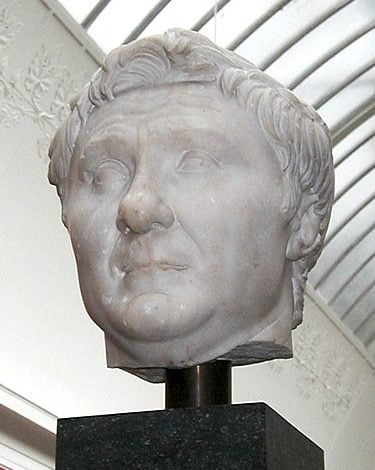Pompey

Gnaeus Pompeius Magnus (Latin: [ˈŋnae̯ʊs pɔmˈpei̯ʊs ˈmaŋnʊs]; 29 September 106 BC – 28 September 48 BC), known in English as Pompey the Great (/ˈpɒmpiː/), was a leading Roman general and statesman, whose career was significant in Rome’s transformation from a republic to empire.
He was for a time a political ally and later enemy of Julius Caesar. A member of the senatorial nobility, Pompey entered a military career while still young and rose to prominence serving the later dictator Sulla as a commander in Sulla’s civil war, his success at which earned him the cognomen Magnus – “the Great” – after Pompey’s boyhood hero Alexander the Great.
His adversaries also gave him the nickname adulescentulus carnifex (“teenage butcher”) for his ruthlessness.[2] Pompey’s success as a general while still young enabled him to advance directly to his first consulship without meeting the normal cursus honorum (required steps in a political career). He was consul three times and celebrated three Roman triumphs.
In 60 BC, Pompey joined Marcus Licinius Crassus and Gaius Julius Caesar in the unofficial military-political alliance known as the First Triumvirate, which Pompey’s marriage to Caesar’s daughter Julia helped secure.
After Crassus and Julia’s deaths, Pompey sided with the optimates, the conservative faction of the Roman Senate. Pompey and Caesar then contended for the leadership of the Roman state, leading to a civil war. When, in that war, Pompey was defeated at the Battle of Pharsalus in 48 BC, he sought refuge in Egypt, where he was assassinated.
